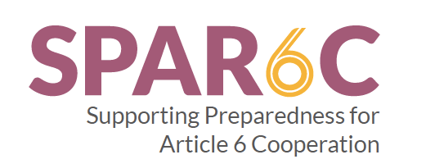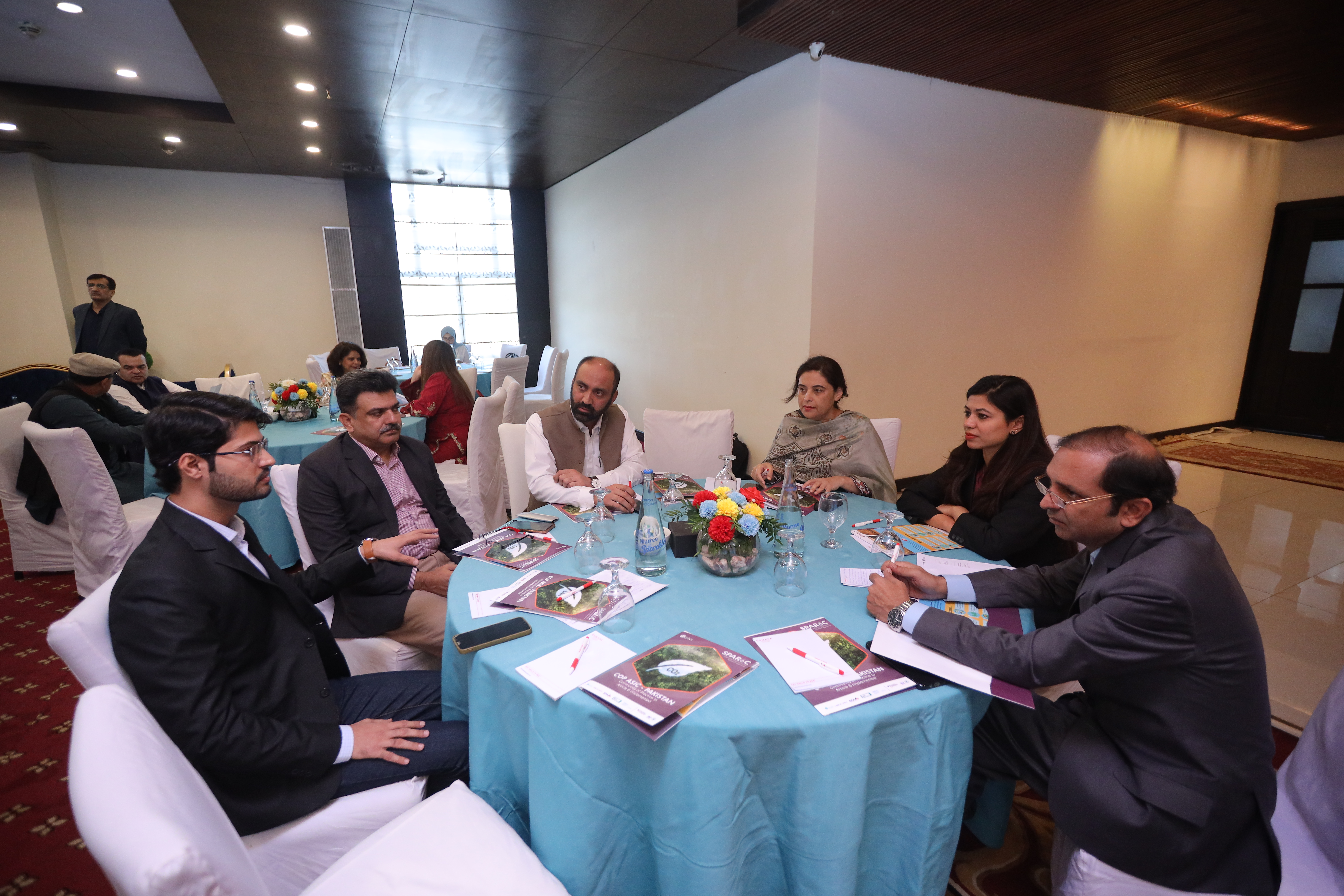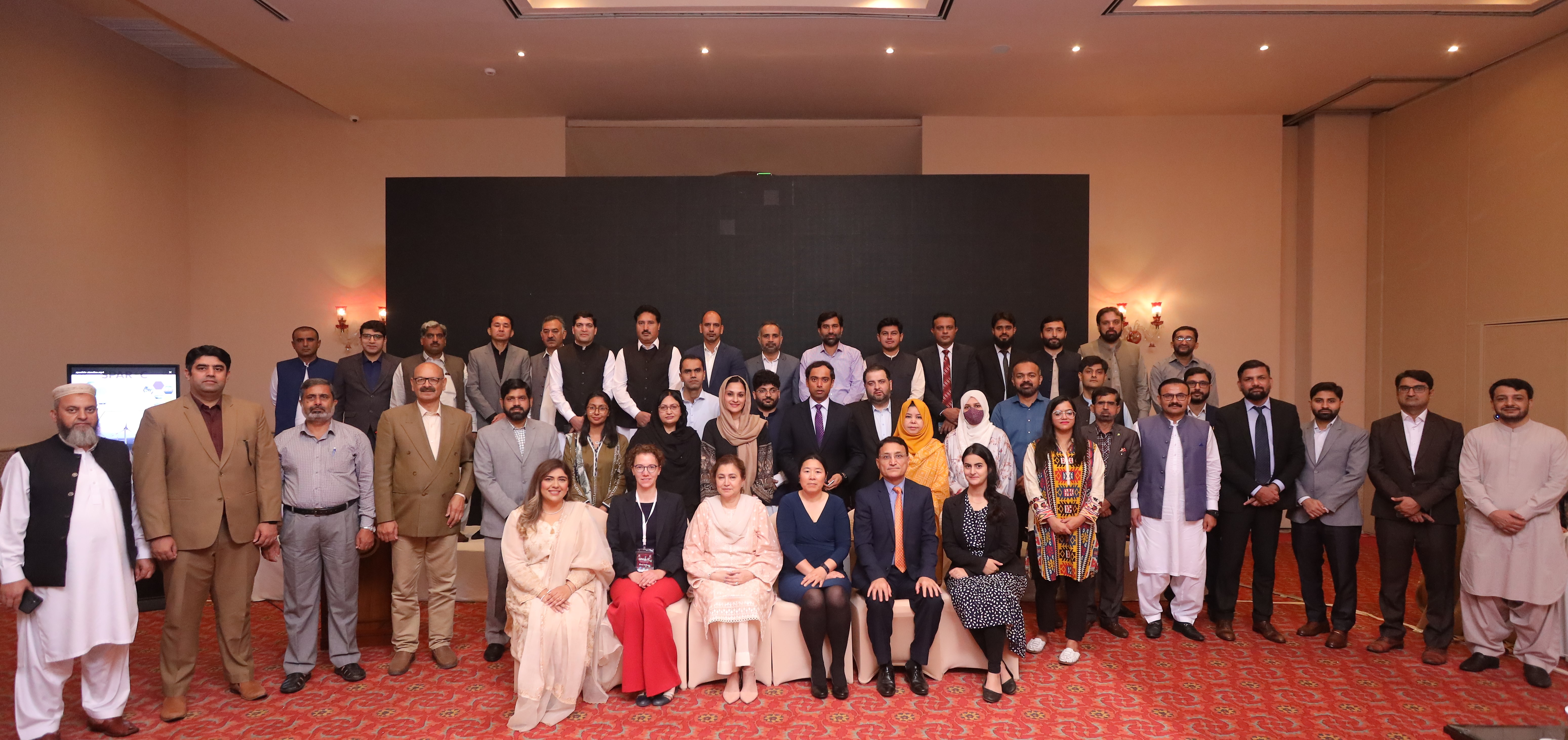The opening day of COP29 in Baku saw a landmark breakthrough for the proliferation of carbon markets, with the approval of standards for the Paris Agreement Crediting Mechanism (PACM), key to implementation of Article 6.4. This represents a critical step towards concluding Article 6 negotiations. Nearly 200 governments agreed on the framework that sets up a centralized global mechanism with clear rules and procedures for countries and companies involved in carbon credit transactions.
Article 6 allows developing countries to host emissions reduction and removal projects and trade the resulting carbon credits internationally as a means to generate new revenue streams and unlock investment in ambitious climate action. To cement Pakistan’s commitment to participation in the new global carbon market, the country’s Ministry of Climate Change and Environmental Coordination (MoCC&EC) marked 16 November as Pakistan Pavillion’s “Carbon Market Day” and organized a high-level event on carbon market.
The discussion-driven event, titled “Pakistan’s Carbon Market Policy and Coordinated Capacity Building for Paris Aligned Carbon Markets,” brought together government officials, carbon market and climate experts as well as carbon market project developers to share insights and forge a roadmap forward in light of the new opportunities presented by the approval of the PACM.
Carbon market support from SPAR6C
The event was supported by the Supporting Preparedness for Article 6 Cooperation (SPAR6C) program, a 5-year programme funded by the German Federal Ministry for Economic Affairs and Climate Action (BMWK) through the International Climate Initiative (IKI). The program is led by the Global Green Growth Institute (GGGI), with implementation in Pakistan led by UNEP Copenhagen Climate Centre and supported by GFA Consulting Group.
The launch of the “Carbon Market Policy Guidelines” was announced by Aisha Humaira, Secretary, MoCC&EC who shared that through this policy, Pakistan aims to accelerate clean technology deployment and attract investment in sectors and projects with significant emissions reduction potential, including energy, agriculture, waste management, and forestry.
“Adopting this policy is only part of the many ongoing carbon market readiness efforts. With the support from the USAID, World Bank, the German government, the , UN Environment Program, and Global Green Growth Institute, we are developing carbon market regulations, integrating carbon market in our new NDC, assessing new sectoral potential, and developing a pipeline of carbon market projects,” she said in her opening remarks.
The new guidelines aim to establish a clear regulatory framework for governing both voluntary and compliance carbon market activities in Pakistan, following international requirements and good practices.
Aligning carbon markets with NDCs
The launch was marked by an insightful panel discussion featuring global experts, including Mark Kenber, Executive Director, VCMI; Fenella Aouane, Director and Head of Carbon Pricing, GGGI; Mirey Atallah, Chief, UNEP Climate Change Division; Riham ElGizy, CEO, Regional Voluntary Carbon Market Company; and Isa Mulder, Expert, Carbon Market Watch.
The panelists highlighted key priorities for the successful implementation of the guidelines.
Mark Kenber emphasized the importance of aligning Pakistan’s carbon market with globally recognized standards such as the Gold Standard and Verra to ensure transparency and investor confidence.
Mirey Atallah underscored the significance of capacity building and technology transfer in scaling Pakistan’s carbon market sustainably, while Riham ElGizy highlighted the role of strong governance and private-sector collaboration in addressing integrity concerns and attracting international investment. Isa Mulder advocated for inclusive market structures that prioritize social and environmental benefits.
The panelists also explored the alignment of carbon market projects with Pakistan’s Nationally Determined Contributions (NDCs), emphasizing the potential to finance transformative initiatives in renewable energy, forestry, and agriculture.
First step to trading
Speaking during the panel discussion, “From Voluntary to Verified: A Roadmap for Investors in Pakistan’s Carbon Market”, Fenella Aouane, Director and Head of Carbon Pricing, GGGI shared that the “The establishment of carbon market policies in Pakistan is an essential first step to trading. The government has an amazing team in place, ready to make an impact. The SPAR6C program and GGGI continue to support where requested – expect to see more news soon!”. Aouane further stressed the need for robust MRV (Measurement, Reporting, and Verification) systems and clear governance frameworks to provide stability and predictability in the market.
Speakers acknowledged that under the stewardship of the MoCC&EC, the “Carbon Market Policy Guidelines” are under approval and will define a legal basis and provide clarity to the market actors both nationally and internationally. This will help unlock the potential of carbon markets in the country, and fulfill its climate and NDC goal, while at the same time contributing to global climate change mitigation efforts.
Moderating the panel discussion, Khurram Lalani, CEO, Resources Future, a consulting company mobilizing resources through innovative financing mechanisms and accelerating the shift towards sustainable energy systems, noted that “Article 6 provides a foundation for resilient and equitable carbon markets in Pakistan and will enable emissions reductions and sustainable development. We feel it is a critical step toward creating transparent, cross-border cooperation that will benefit both communities and economies. Today is an important day which will go beyond implementing Article 6 to shape global climate action for years to come.”
Acknowledging that the implementation of Article 6 will allow for much needed funds to flow towards developing countries that have the potential to develop carbon projects or protect existing carbon sinks, speakers discussed the myriad opportunities and collaboration for Pakistan.
Countries collaborating with Pakistan will benefit from a one-window facility, currently under establishment, through which all transactions and all communication will succeed. Through this facility, buyer countries will be ensured due transparency and tracking aligned with international industry standards. On the project development side, the facility will provide common guidance for all developers that wish to benefit from participating in the global carbon market, ensuring that all carbon market activities live up to the highest standards of environmental integrity, regardless which type of activity is considered, and regardless which part of the carbon market is addressed.
A cohesive strategy
The “Carbon Market Policy Guidelines” outline a cohesive strategy and authorization criteria, which prioritizes investment in resilience and climate change adaptation, and works closely with provincial governments. While these guidelines offer cultural and geographical nuance for each province’s differential needs, they set stringent quality control criteria. Thus ensuring high-quality project development with substantial co-benefits. Finally, countries will experience a competitive and cost-efficient framework that emphasizes fairness in benefit distribution.
It was revealed at the event that a number of project opportunities have already been identified on the basis of which the Government of Pakistan intends to initiate dialogues on Article 6 collaboration. Sectoral priorities and strategies are currently under development as part of the NDC updating process, which will help to identify more specific opportunities. The SPAR6C program is identifying sectoral opportunities in Pakistan for carbon markets and disseminated technical briefs for the waste, transport and cement sector at the event as well.
Delivering the Closing Remarks, Coordinator to Prime Minister on Climate Change, Romina Khurshid Alam, Pakistan shared that the country is now actively exploring the development of carbon markets as a key strategy to meet its climate goals, attract green investments and transition toward a low-carbon economy as a part of efforts geared towards achieving environmental sustainability and climate resilience in the country.
“This launch is just the beginning. The government of Pakistan is fully committed to supporting the development of this market, ensuring it becomes a cornerstone of our climate strategy and a catalyst for sustainable development,” she announced.
The event concluded with a shared commitment to translating the guidelines into actionable steps that will position Pakistan as a credible player in global carbon markets while driving sustainable development and climate resilience domestically.



